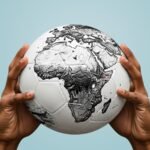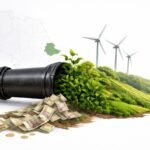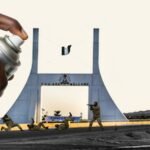In the heart of Central Africa, where the dense forests meet bustling cities and vibrant markets, lies a nation grappling with its identity and its future. Cameroon, a country known for its cultural diversity, natural beauty, and historical complexity, finds itself at a crossroads once again. The recent presidential election has reignited a conversation that has simmered for decades: How long can a nation be led by the same individual?
At 92 years old, President Paul Biya stands as the world’s oldest serving head of state, and yet he shows no sign of stepping aside. Having ascended to power in 1982, Biya has presided over a nation of more than 28 million people through economic booms and busts, political unrest, and an evolving social landscape. His longevity in office has earned him both admiration and criticism—admiration for his political acumen and ability to maintain stability in a region often marred by coups, and criticism for fostering an entrenched system resistant to change.
The recent election, widely expected to hand Biya another term, has exposed deep fissures in Cameroonian society. The opposition, while present, remains fragmented, struggling to coalesce behind a single candidate capable of challenging the entrenched regime. Notable figures such as Bello Bouba Maïgari, former Prime Minister and longstanding opposition leader, have made efforts to rally support, particularly in the northern regions, but the opposition’s efforts often feel like tilting at windmills against the massive machinery of state power.
Economically, Cameroon has faced challenges that fuel frustration among its citizens. While the nation possesses abundant natural resources, including oil, timber, and agricultural products, growth has been uneven. Youth unemployment remains high, urban centers face infrastructure deficits, and regional disparities persist. For many young Cameroonians, the prospect of a political system dominated by an octogenarian feels increasingly disconnected from the realities of their daily lives.
The social fabric of Cameroon is equally complex. The ongoing Anglophone crisis, a bitter conflict in the western regions of the country, has claimed thousands of lives and displaced hundreds of thousands more. Biya’s administration has been criticized for its handling of the crisis, accused by many of heavy-handed measures and failing to address the underlying grievances of the Anglophone population. Protests and demonstrations are often met with police intervention, fueling a perception among younger citizens that meaningful change cannot be achieved under the current leadership.
Despite these challenges, Biya has managed to maintain a tight grip on power through a combination of political savvy, patronage networks, and control over state institutions. His campaign strategy, focused on continuity, stability, and experience, appeals to older voters and those wary of sudden change. For them, Biya represents a steady hand in a region known for volatility.
Yet the younger generation is increasingly vocal, impatient with the status quo. Social media has become a battleground where Cameroonians—particularly the youth—voice their frustrations, campaign for reforms, and debate the future of the nation. They demand better infrastructure, more employment opportunities, and the promise of a system in which merit, rather than connections, determines success. Their energy signals a shift in the national consciousness, a yearning for a government more responsive to the needs of ordinary citizens.
International observers have watched the election with a mixture of concern and cautious optimism. While there is recognition of Biya’s skill in maintaining political stability, there is also unease over the lack of political competition and the suppression of dissenting voices. The international community has repeatedly called for reforms that would ensure fairer elections and a more inclusive political process.
As Cameroon awaits the final results, the country’s path remains uncertain. Will it continue along the road of continuity, where power is concentrated in the hands of one leader and change comes slowly, if at all? Or will it embrace the winds of change, giving voice to a younger, more dynamic generation eager to shape their own future? The answers are not simple, and the stakes are high—not just for Cameroon, but for a region watching closely.
What is clear is that Cameroon’s political landscape is at a pivotal moment. The election has reminded the world that longevity in office, while providing stability, also comes with the burden of responsiveness. For Biya, the challenge is to balance his decades of experience with the demands of a new era. For Cameroonians, the question is whether patience and pragmatism will prevail, or whether a new generation will seize the opportunity to redefine the nation’s trajectory.
In a country where tradition meets modernity, where forests give way to skyscrapers, and where age-old politics clash with digital activism, Cameroon’s election is more than a political exercise—it is a reflection of the nation’s struggle with its identity, its values, and its hopes for the future. For better or worse, the world is watching as Cameroon decides whether to remain in the hands of its eternal president or to turn the page to a new chapter.











